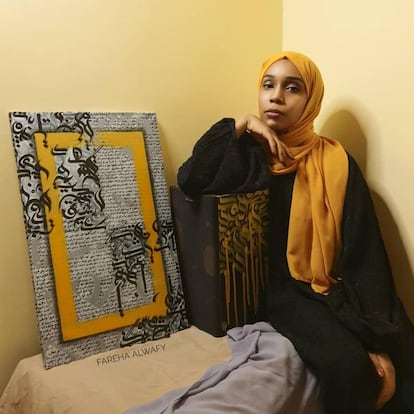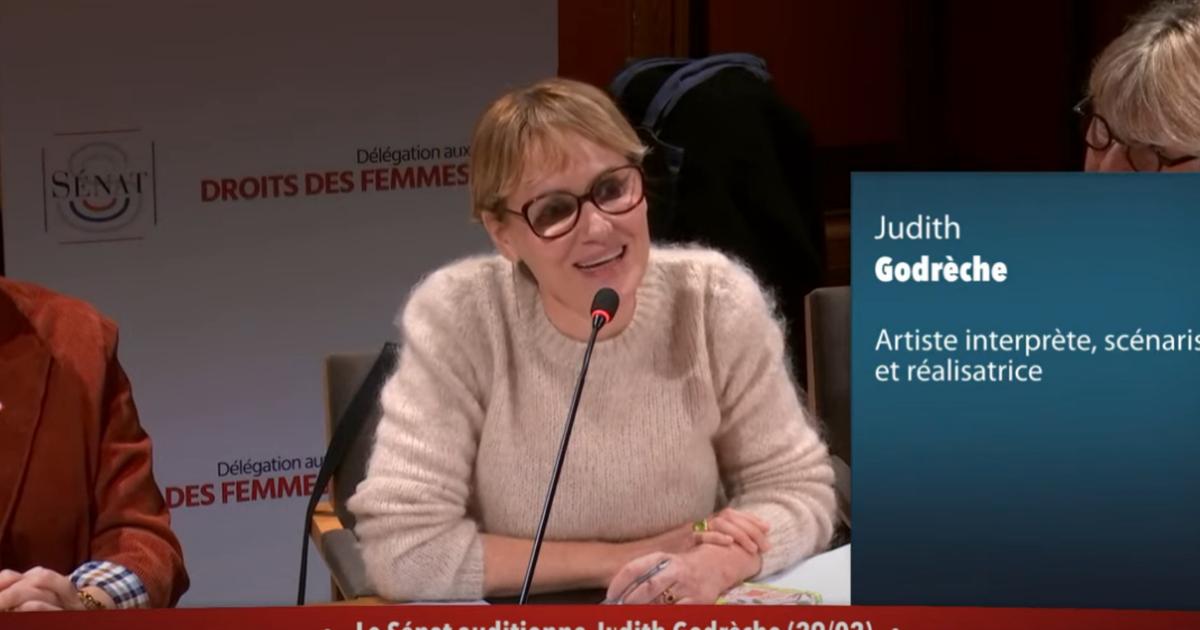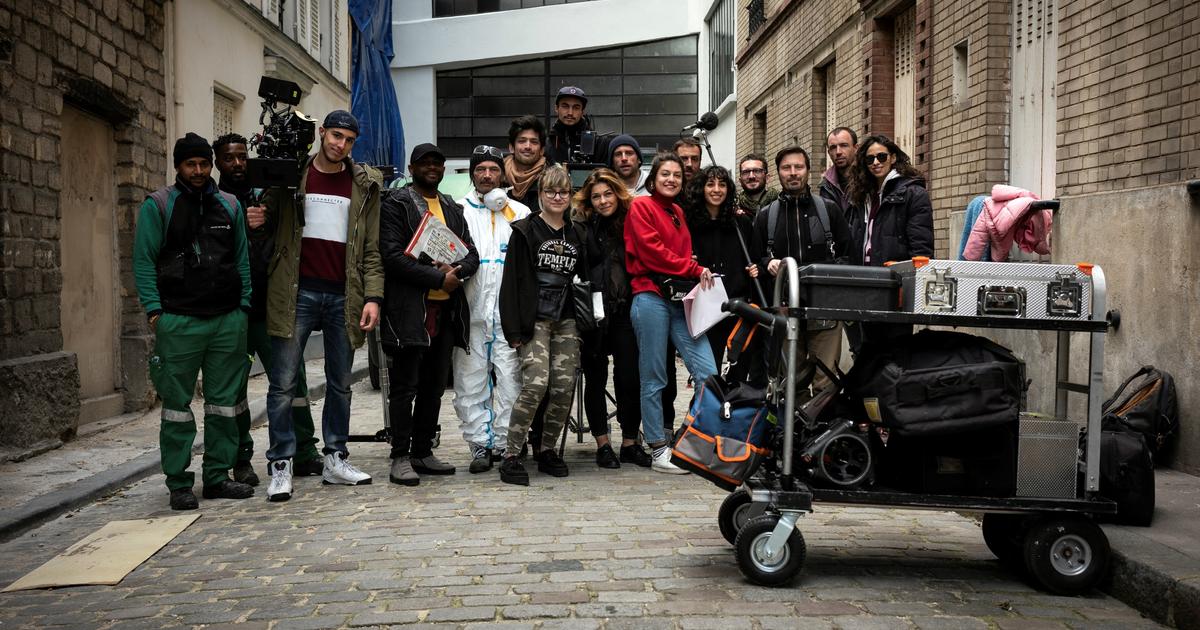War or peace, hope or pessimism, fear or audacity.
They are some of the most present elements in Fariha Alwafy's drawings.
They are sheets starring women, sketches that express discrimination and impotence in the face of the struggle for the survival of Libyan women.
At 25 years old, Alwafy has managed to open an art workshop in the town of Wadi Etba, in the south of the country, and turn it into an oasis of listening and claims for gender equality
in a rural, desert and
disputed by militias.
“In my country, we don't have opportunities, but one day a friend encouraged me to participate in the Riyadiyat program, a contest
nationwide, and I signed up”, he says from the other side of the screen.
It is a contest aimed at women and promoted by the Libyan organization Musasat Elbir Wa Tagua El-Jayriya with the support of the European Commission.
"They finance up to five projects a year and one of them was mine, in 2020", she announces proudly.
He rushes trying to relate what happened when he received the scholarship, and the trip with his father to the capital, Tripoli, to buy all the material.
Portrait of a Libyan woman drawn by Fariha.Fariha Alwafy
The mere fact of participating in the competition was a great challenge.
They did not feel rivals among the contestants.
They were on television and they had to do well;
Alwafy was expectant at his family's reaction.
"We supported each other to prepare the defense of the ideas before the jury and it seemed like an achievement to us just to see each other there," she adds.
It was exciting for her to see how other colleagues
they felt like the protagonists in a society that has always relegated them to the background.
They, since the outbreak of the revolution in 2011, feel that they have acquired a greater public presence, but they also face insecurity: "At any moment we can be raped, beaten and even murdered."
Libya is an unsafe place for anyone and even more so for women according to the latest report from the UN Independent Fact Finding Mission in Libya. All the contenders in the war in the country have perpetrated crimes against humanity from 2016 to the present. They have also faced arbitrary arrests, torture and other serious human rights violations, such as the recruitment of girls to be turned into sexual slaves. The country has been in chaos since the overthrow of dictator Muammar Gaddafi by the opposition, which was then backed by a NATO-led international coalition.
“During the revolution there was an environment that allowed us to leave our homes and demonstrate.
We tried to contribute and we were a very valuable asset.
At all times I have been aware of the terrible legacy that Gaddafi left us;
he would never have imagined all that we are achieving.
I always wondered: What will happen next?” reflects Zahra Langhi, co-founder of the Libyan Women's Platform for Peace (LWPP).
Fariha poses in front of one of her prints.Fariha Alwafy
What happens, according to Langhi, is that they have inherited a historically sexist and discriminatory culture, and that is why he believes that these 10 years of conflict have allowed them to have a greater presence in public life. They have more decision-making power within the family, since they have been forced to make a living to survive, both themselves and their loved ones; but at the same time, the context of widespread violence and impunity in the country has led to a drastic increase in gender violence.
“The main problem we have is weapons. We witnessed a real drama”, he adds. The conflict they have been experiencing since 2011 has affected our daily lives, but their main problem continues to be abuse. "Another of the great challenges is the rise of a radical and extremist mentality that is killing us," interrupts Marwa Salem, a Libyan feminist and activist.
“It is not because of culture or traditions, it is because we are women,” she adds.
She fights through education and relies on the media.
“We need to speak to society about values such as equality.
My obsession is to raise awareness and do it with the little ones”, he explains.
"I teach English and teach them values with feminist songs."
She is particularly concerned about the situation of girls.
It ensures that only since last September more than 940 marriages with minors have been registered.
“These are only the ones that have been registered.
It's a chilling thing."
Fariha draws ten years of suffering in Libya.Fariha Alwafy
It is clear to him that the war in Libya has brought more conservatism: "We are facing a terrible wave of radicalism." It deplores the normalization of violence in the home and in marriage and, what is worse, the impunity with which those who attack, abuse and rape act. There are, he says, many cases of honor crimes, that is, the murder of women by members of their clan due to the belief that the victim has brought them into disrepute due to sexual behavior considered inappropriate.
To all this, is added the fear with which they live every day, especially feminist activists. Violence is so common that any day, at any time, they can kill one: "I have dozens of examples, of names of activists who have been killed in broad daylight, and the perpetrators are in their homes." The most notorious have been that of the lawyer Selwa Bugaish, in 2014; that of deputy Seham Sergiwa, in 2019; and that of the activist Hanan el Barassi, who was publicly executed in 2020.
The United Nations has denounced that, since 2014, numerous attacks appear to have been indiscriminate and, in particular, have affected densely populated residential areas. Among other localities, the cities of Bengazi, Tripoli and Warshafana stand out, although also in others in the mountainous area and in the south of Libya. The spokeswoman for the Libyan Women's Platform for Peace (LWPP) considers that women human rights defenders do not consider themselves victims, although they are fighting for their lives. “I think we are helping with many projects, despite the fact that they demonize us and speak ill of us. Fortunately, little by little we are gaining the trust of others. More strength is palpable, although we must still continue to act with caution”, he concludes.
Sexist violence is repeated inside and outside the home.
Before setting up her art workshop, many young women contacted Alwafy to ask her for help to carry out the project in their area and supported her on social networks.
However, now no girl can get close to his center.
“They tell me that it is for safety and because of the fear that their families have that something will happen to them,” denounces the artist.
She was shocked that none could participate in person for fear of reprisals, so she has been forced to organize virtual workshops on the internet so that those who want to learn to draw like her can do so, without fear.
You can follow PLANETA FUTURO on
,
and
, and subscribe
to our 'newsletter'
here
.





/cloudfront-eu-central-1.images.arcpublishing.com/prisa/WPELUPQUZNBGDDGMB6PTNPDWQ4.jpg)
/cloudfront-eu-central-1.images.arcpublishing.com/prisa/LEIC3BARY5C77P635KDG2GRZWA.jpg)


/cloudfront-eu-central-1.images.arcpublishing.com/prisa/3VG35KWHORAZFCS2WL2ZCQF26Q.jpg)